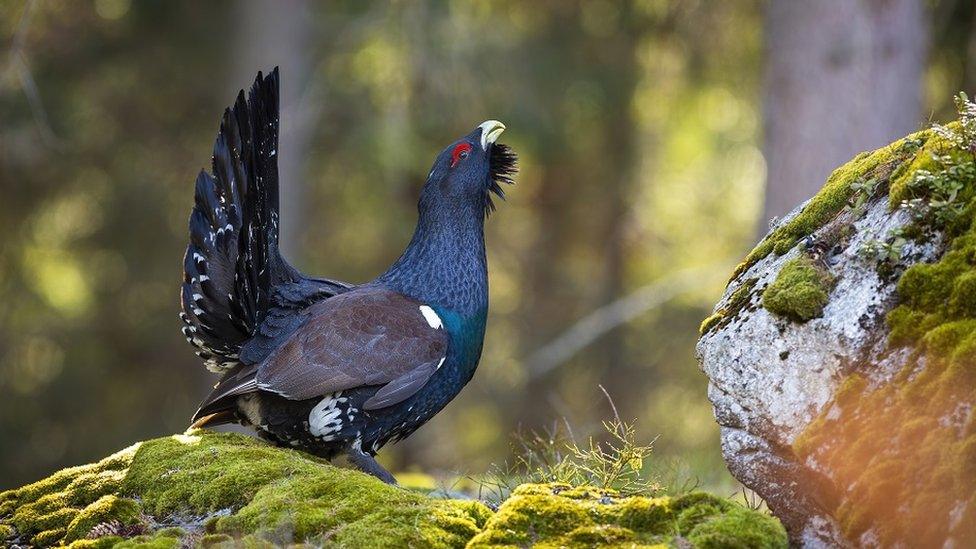Capercaillie at real risk of extinction, survey finds
- Published
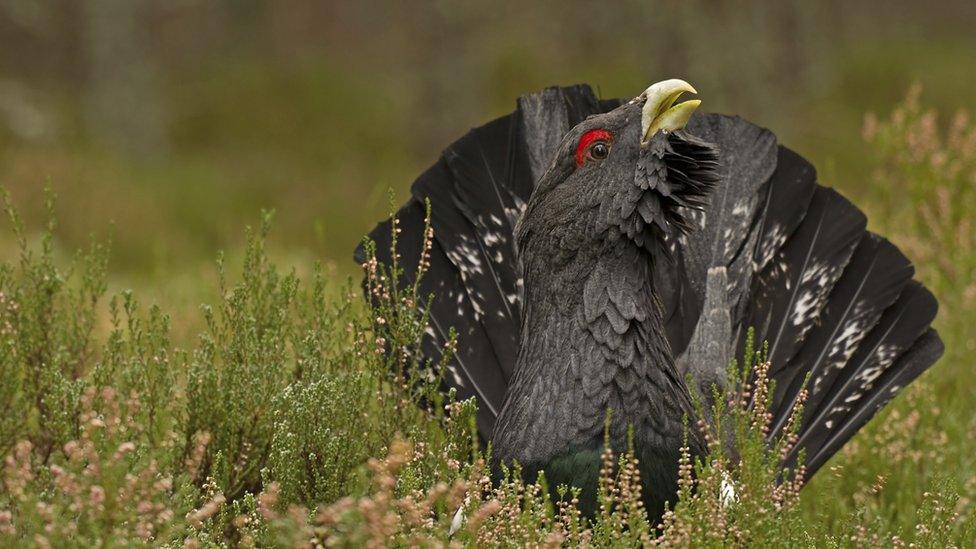
The capercaillie is at real risk of extinction in the UK, with only 542 of the birds estimated to be left in Scotland, according to a new survey.
The population has dropped by about 50% since the last survey six years ago and is now at a critically low level, the survey found.
Numbers of capercaillie have been declining since the third national survey of 2003/04.
However this is the first time the population has gone below 1,000.
Conservation scientists said the decline was being fuelled by a combination of factors which reduce capercaillie survival and breeding success.
This includes cold, wet, spring weather which has an impact on the fitness of female birds before the breeding season and affects chick survival.
Predation and a habitat which remains fragmented in places despite ongoing work to enhance it are also factors.
The UK capercaillie population is only found in Scotland, with 85% living in the Cairngorms National Park.
They are described as very shy and elusive birds, often perching in trees or hidden away on the forest floor. They are mostly found in Scots pine forests that have a rich growth of blaeberry on the forest floor.
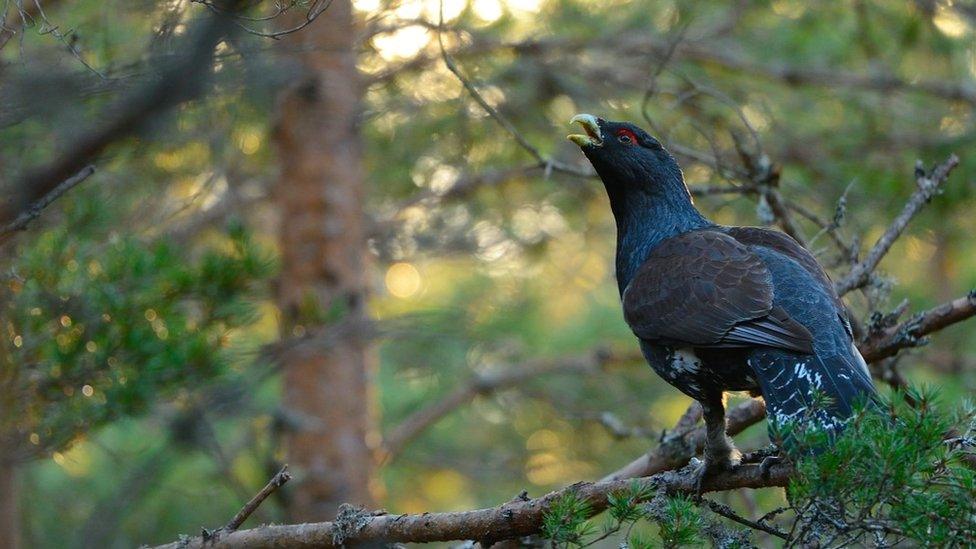
Capercaillie are shy birds, often found perching in trees
Experts are calling on agencies to work together to try to help the birds.
Nick Wilkinson, conservation scientist at RSPB Scotland, said: "This up-to-date estimate of capercaillie numbers reveals just how vulnerable the population in Scotland is.
"Previous surveys have seen numbers fluctuating between around 1,000 and 2,000 birds so it's really worrying that the results from last winter indicate there are only an estimated 542 individuals remaining now.
"These results will help focus efforts on where action should be targeted to help capercaillie by identifying their strongholds and where the most impact can be made for them."
The country's capercaillie population is surveyed every six years. This sixth survey was conducted over the winter of 2021/22.
It was funded by RSPB Scotland, NatureScot, Cairngorms National Park Authority, Cairngorms Capercaillie Project, Forestry and Land Scotland, and Scottish Forestry, with RSPB Scotland undertaking the fieldwork and scientific analysis of the results.
It comes after a study by the NatureScot Scientific Advisory Committee (SAC), published in February, warned that the bird was likely to become extinct again in the UK within two to three decades if the current trend in population decline continued.
The report said "renewed intensive measures" were needed if the population is to be conserved, focusing on options that will improve the survival of eggs and young chicks.
Andy Douse, NatureScot ornithology adviser, said: "It's clear that the future of capercaillie in Scotland is extremely vulnerable.
"We recognise the urgency of the situation and the need to accelerate the partnership work that's necessary to tackle threats to the species."
- Published25 February 2022
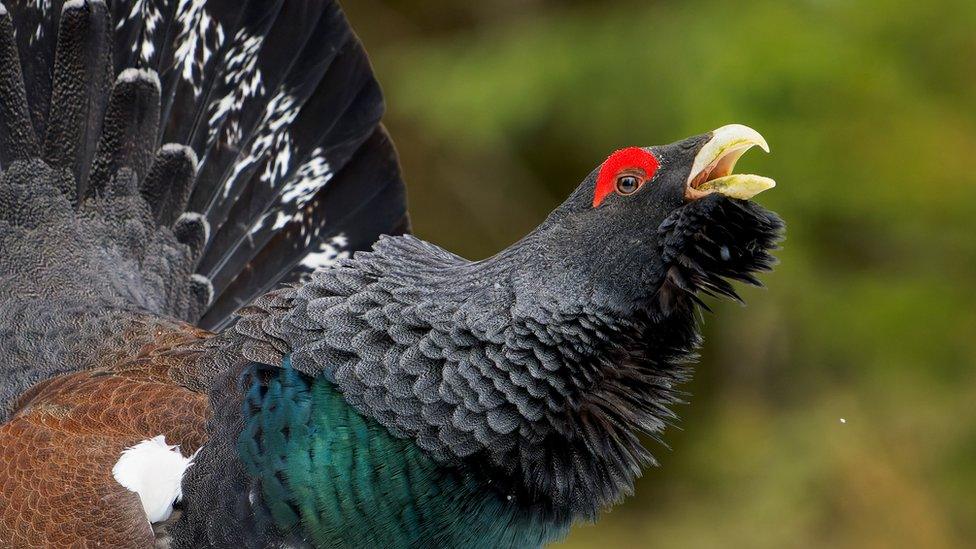
- Published22 January 2022
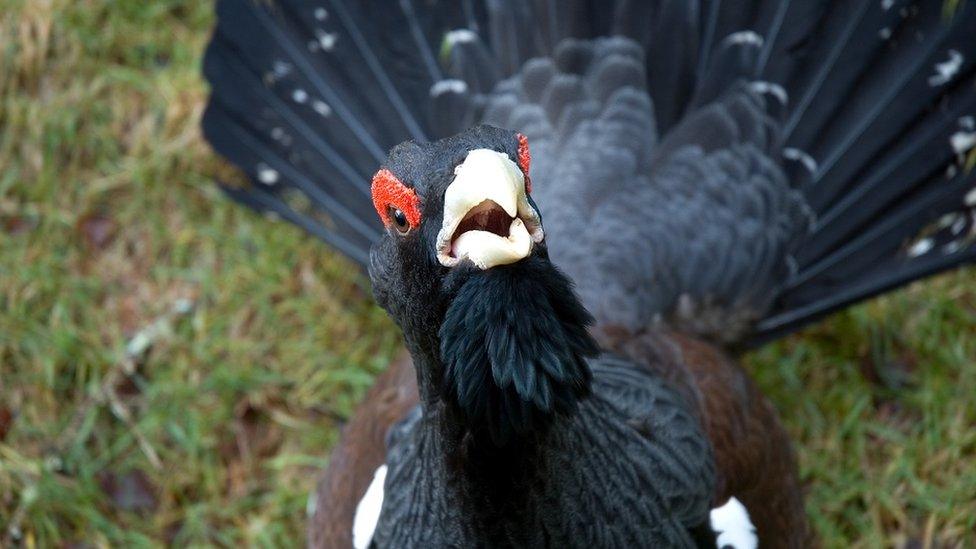
- Published24 June 2021
